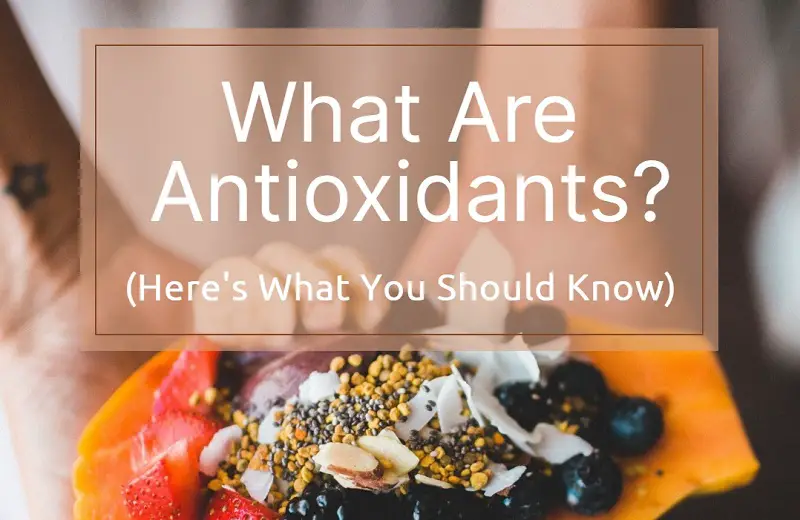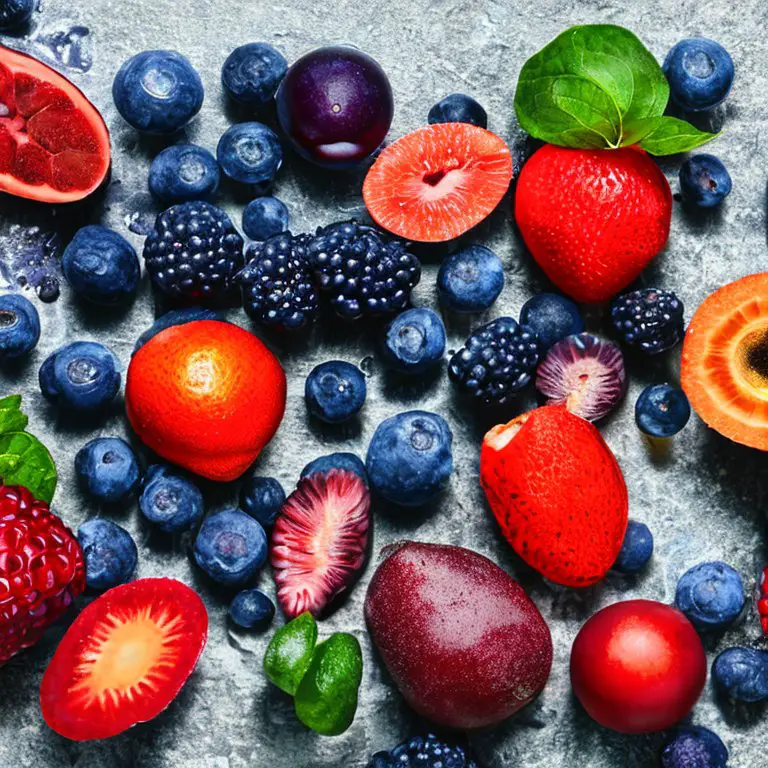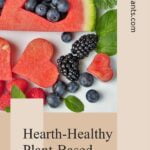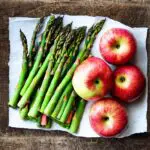
Antioxidants are great for your health and your well-being! In this post, we will take a look at antioxidants and learn what they are, what they are good for, where to find them, and more.
What Are Antioxidants?
Antioxidants are substances that can protect the body from damage caused by molecules called free radicals. Free radicals are produced naturally in the body and can be harmful if they build up in large quantities. They can damage cells, proteins, and DNA, and are thought to contribute to the development of chronic diseases such as heart disease, cancer, and diabetes.
Antioxidants work by neutralizing free radicals and preventing them from causing damage. They do this by donating an electron to the free radicals, which neutralizes them and prevents them from reacting with other molecules in the body.
Antioxidants are found in a variety of plant-based foods, including fruits and vegetables, nuts and seeds, and whole grains. They are also available in supplement form, but it is generally recommended to get antioxidants from food sources whenever possible.

What Are Antioxidants Good For?
Antioxidants are substances that can protect the body from damage caused by molecules called free radicals. Free radicals are produced naturally in the body and can be harmful if they build up in large quantities. They can damage cells, proteins, and DNA, and are thought to contribute to the development of chronic diseases such as heart disease, cancer, and diabetes.
Learn more at The Power of Antioxidants.
What Do Antioxidants Do?
Antioxidants work by neutralizing free radicals and preventing them from causing damage. They do this by donating an electron to the free radicals, which neutralizes them and prevents them from reacting with other molecules in the body. This helps to protect cells, proteins, and DNA from damage, and can help prevent the development of chronic diseases.
In addition to neutralizing free radicals, antioxidants can also support the immune system by protecting cells from damage and helping them to function properly. They can also support healthy aging by protecting cells and DNA from damage, and can help prevent the development of age-related diseases and conditions.
Finally, antioxidants can support healthy skin and vision by protecting these tissues from damage caused by free radicals and other environmental factors.
Antioxidants Benefits
Because of their ability to neutralize free radicals and prevent them from causing damage, antioxidants are thought to have many potential health benefits. Some of the potential benefits of antioxidants include:
- Reducing the risk of chronic diseases: Antioxidants may help reduce the risk of chronic diseases such as heart disease, cancer, and diabetes by neutralizing the free radicals that can contribute to the development of these conditions.
- Supporting immune function: Antioxidants may help support the immune system by protecting cells from damage and helping them to function properly.
- Supporting healthy aging: Antioxidants may help support healthy aging by protecting cells and DNA from damage caused by free radicals. This can help prevent the development of age-related diseases and conditions, such as cognitive decline and cataracts.
- Supporting skin health: Antioxidants may help support healthy skin by protecting it from damage caused by free radicals and other environmental factors. This can help prevent the development of wrinkles and other signs of aging.
- Supporting healthy vision: Antioxidants may help support healthy vision by protecting the eyes from damage caused by free radicals and other environmental factors. This can help prevent the development of age-related eye conditions, such as cataracts and macular degeneration.
What Are Antioxidants Found in Food?
Antioxidants are found in a variety of foods, including fruits and vegetables, nuts and seeds, and whole grains. Some common sources of antioxidants in food include:
- Fruits and vegetables: Many fruits and vegetables are rich in antioxidants, particularly those that are brightly colored, such as berries, cherries, tomatoes, and leafy greens.
- Nuts and seeds: Nuts and seeds are a good source of antioxidants, particularly those that are high in polyphenols, such as almonds, walnuts, and flaxseeds.
- Whole grains: Whole grains, such as oats, quinoa, and brown rice, are a good source of antioxidants, particularly those that are high in fiber and other nutrients.
- Tea and coffee: Tea and coffee are rich in antioxidants, particularly those that are high in polyphenols, such as green tea and dark roast coffee.
- Chocolate: Chocolate, particularly dark chocolate, is a good source of antioxidants, particularly those that are high in flavonoids, such as cocoa.
In addition to these foods, antioxidants are also available in supplement form. However, it is generally recommended to get antioxidants from food sources whenever possible, as they are also a good source of other essential nutrients.
Examples of Antioxidants
Examples of antioxidants include:
- Vitamins A, C, and E: These vitamins are powerful antioxidants that can protect the body from free radical damage. They are found in a variety of fruits and vegetables, such as berries, tomatoes, and leafy greens.
- Selenium: Selenium is an antioxidant mineral that is found in a variety of foods, including nuts, seeds, and whole grains.
- Carotenoids: Carotenoids are pigments that give fruits and vegetables their bright colors, and are also powerful antioxidants. Examples of carotenoids include beta-carotene, lutein, and lycopene.
- Polyphenols: Polyphenols are antioxidants that are found in a variety of plant-based foods, including fruits and vegetables, tea and coffee, and wine. Examples of polyphenols include flavonoids, catechins, and resveratrol.
- Glutathione: Glutathione is a naturally occurring antioxidant that is produced by the body. It is found in a variety of foods, including fruits and vegetables, and is also available in supplement form.
What are the Best Antioxidants?
The best antioxidants are those that are most effective at neutralizing free radicals and preventing them from causing damage in the body. Some of the most powerful antioxidants include:
- Vitamins A, C, and E
- Selenium
- Carotenoids
- Polyphenols
- Glutathione
It is important to note that the best antioxidants are those that are most effective at neutralizing free radicals in the body. This can vary depending on the specific antioxidant and the individual person.
It is generally recommended to get a variety of antioxidants from different plant-based foods, such as fruits and vegetables, nuts and seeds, and whole grains, to ensure that you are getting a balanced intake of antioxidants.
Lance has been passionate about the plant-based diet and we have been following a whole food plant-based diet for over 5 years. We focus on health, natural healing, weight management, animal rights, and the health of the planet and environment by focusing on whole plant-based foods and sustainable practices.
Learn more at the About Me page and follow on social media at the links below.






